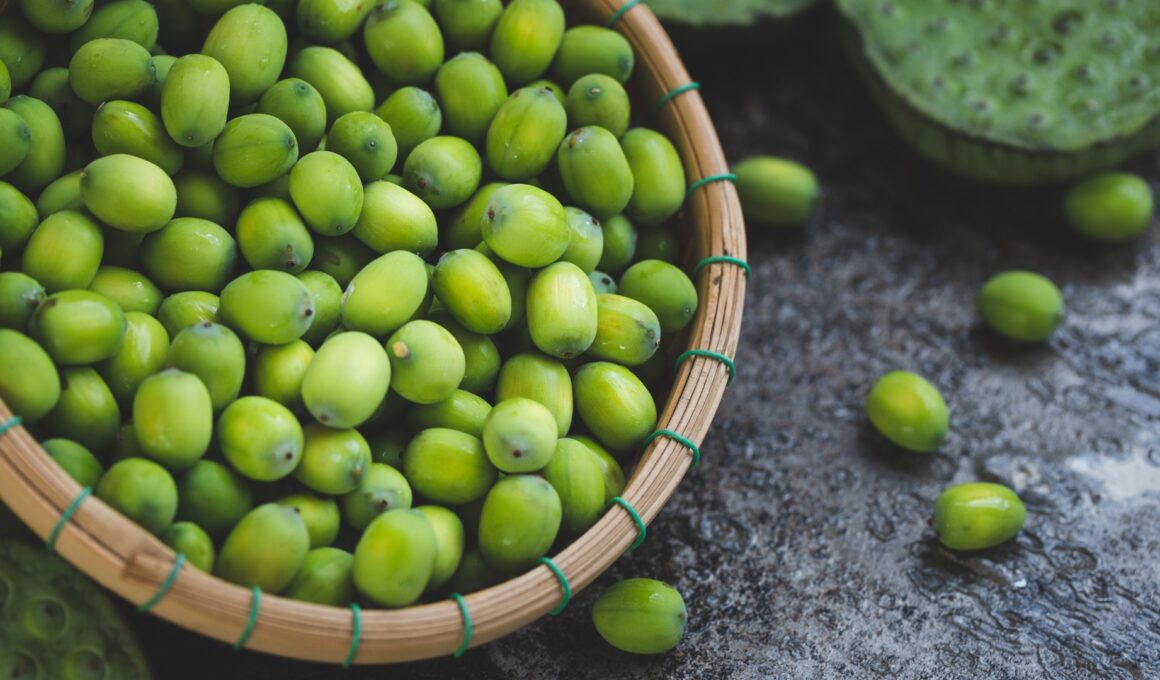Lotus seeds are produced by the lotus flower and can be consumed raw or cooked. They have long been valued in Chinese medicine for a range of medicinal properties and as is so often the case, many of their purported benefits have since been backed up by research.
Nutritional Value and Anti-Aging
Lotus seeds contain protein, magnesium, potassium and phosphorous. This combination of proteins and minerals makes them a great source of nutrition, along with other types of seeds. They additionally contain trace elements of iron and zinc and are low in calories (86 per 100 grams), making them a greats snack between meals.
What gets people really excited though are the anti-aging properties promised by lotus seeds. These seeds contain an enzyme called L-isoaspartyl methyltransferase which is linked with anti-ageing effects due to its ability to repair damaged proteins. It seems particularly good at reducing age-related damage in plants and animals and it may even be able to slow the ageing process at a molecular level (1). As a result, L-isoaspartyl methyltransferase finds use in a number of different skin-care and anti-ageing products.
Should You Use Lotus Seeds?
While this link might be appealing for anyone looking to reduce the visible signs of ageing, it’s important to keep this in perspective. There is only a small amount of L-isoaspartyl methyltransferase in lotus seeds and there have been no studies looking specifically at the role of lotus seeds in slowing ageing. As we all know well, there is no product on the market that has been able to slow the effects of ageing to a particularly noticeable degree and if there were – we’d all be taking it by now!
Lotus seeds are a good source of nutrition that are also low in calories. They’re great for snacking and for preventing hunger pangs – the anti-ageing benefits should be considered a nice bonus but don’t get your hopes up!




